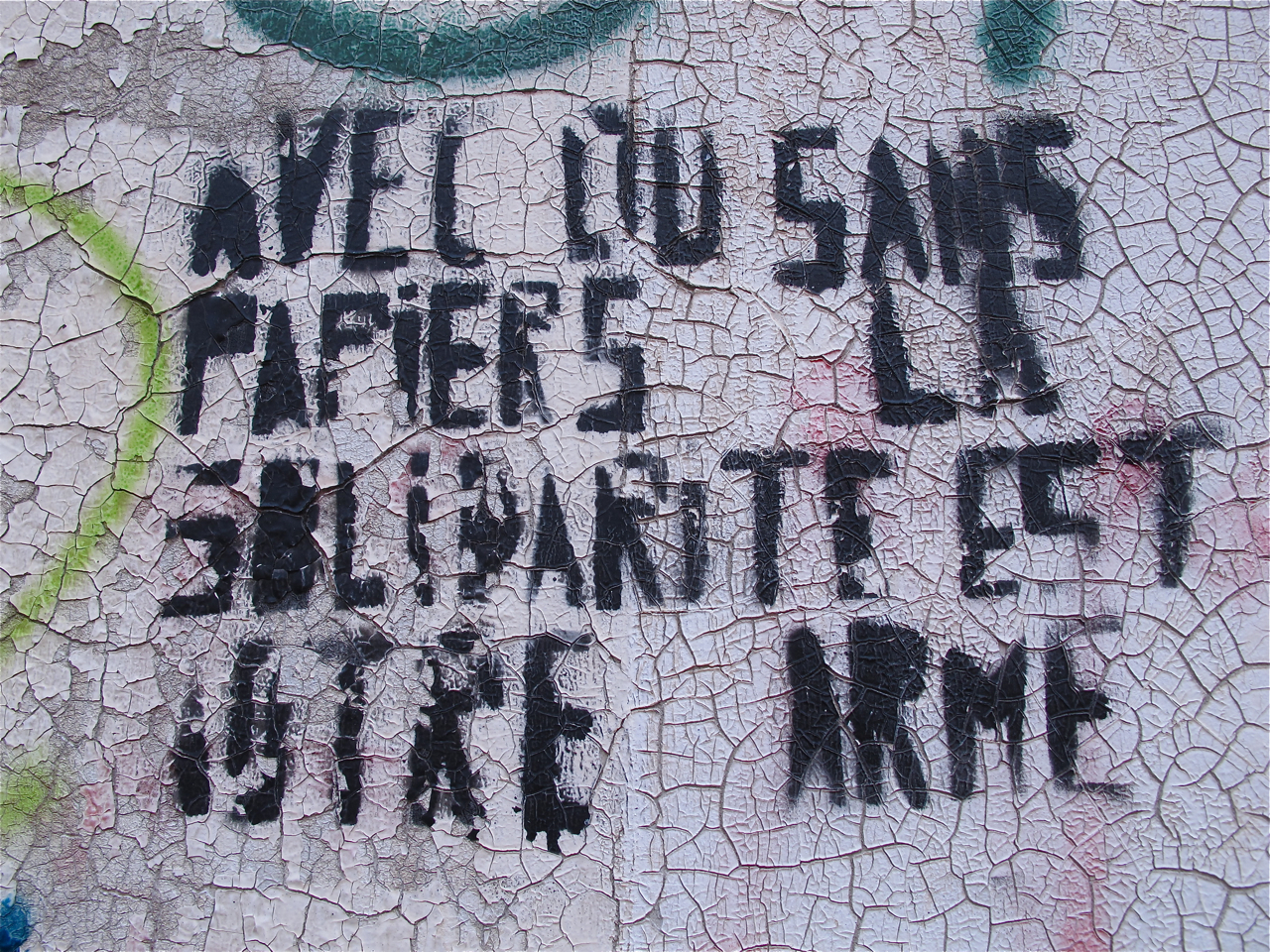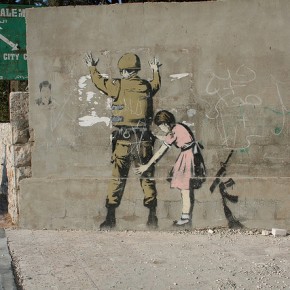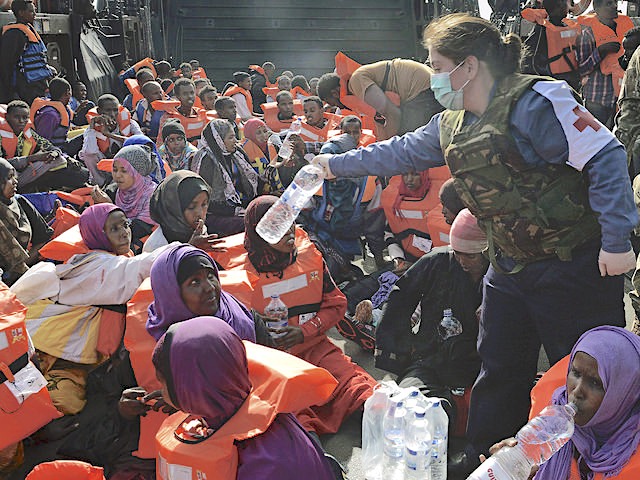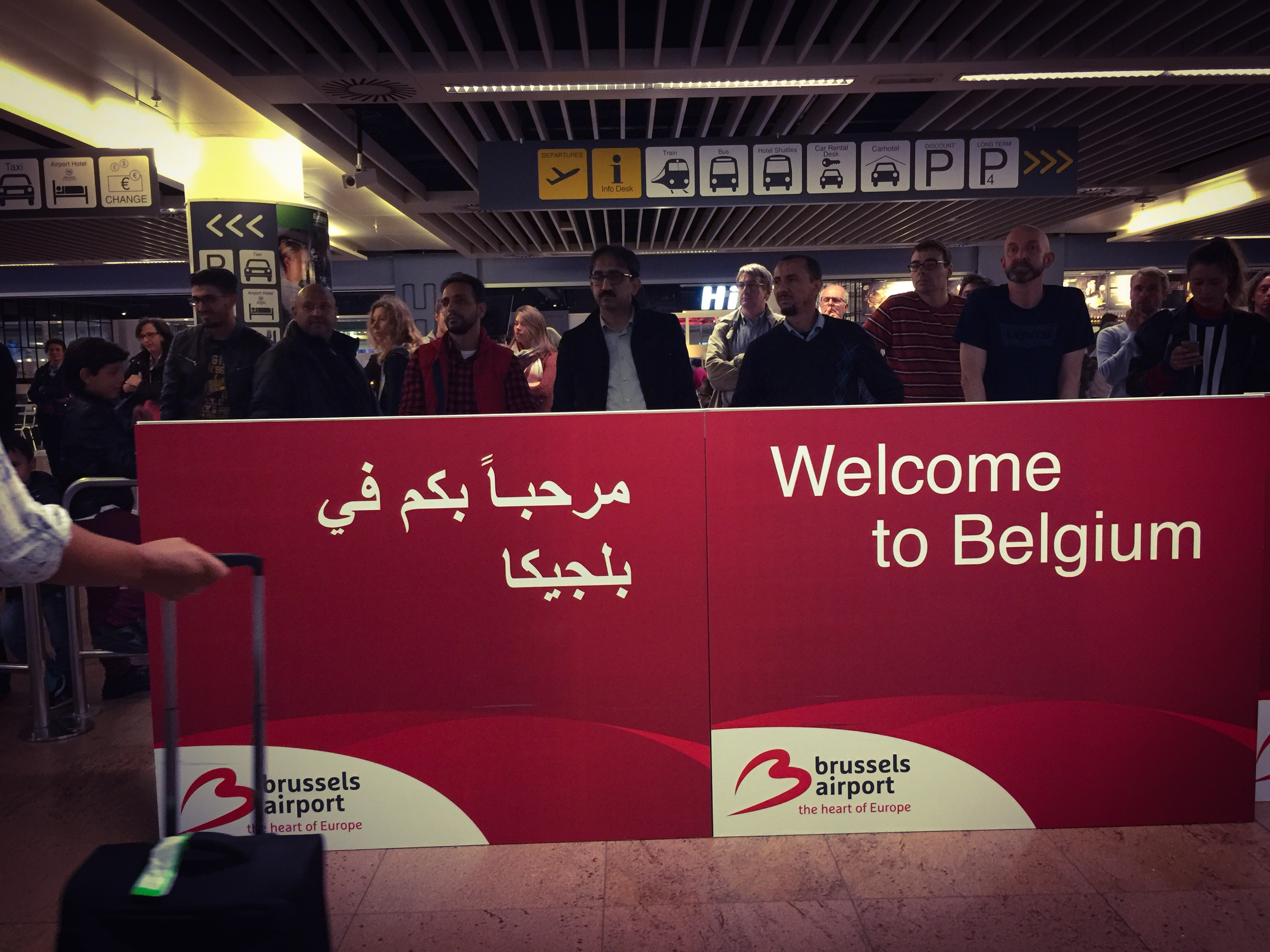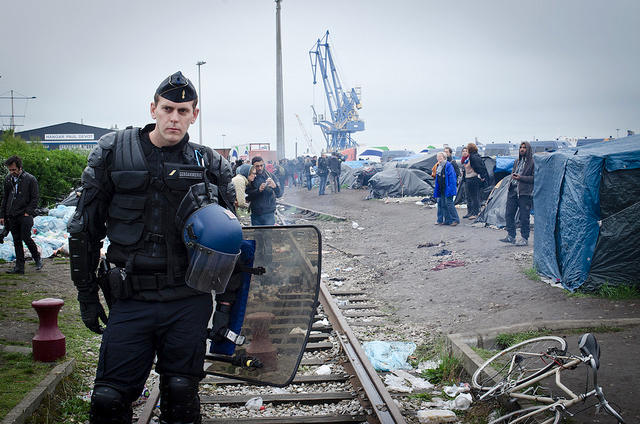“Sans papiers.” For European advocates of multiculturalism and social justice, few terms have as much political significance as this piece of graffiti testifies, in Brussels’ Matongé neighborhood. French for “without papers,” the designation was originally coined in reference to illegal immigrants to France, who number up to 400,000, according to The Guardian.
Also used to refer to migrants to other EU member states, such as Italy, which plays host to a large, French-speaking North African population, “sans papiers” is frequently found scrawled on buildings in cities such as Milan and Turin , and in pro-migrant advocacy literature distributed by relief agencies.
It wouldn’t be Italy, however, if there wasn’t a reasonably recognizable localization of the French. Appropriately, as common to local pro-migrant advocacy is the term “No documenti,” which is a direct translation. Equally recognizable is the Italian slogan “Fuoco al CIE,” or “Burn the Centers of Identification and Expulsion,” a reference to the detention centers in which illegal immigrants, caught by the authorities, are frequently placed. [They are also referred to as “lagers” or “concentration camps.”]
“Aucan homme n’est illegal,” or “No one is illegal.” Another commonly-encountered phrase, it is equally employed in non-French speaking contexts around Europe, as well as, with less frequency, in the United Kingdom, and North America. This postcard, pasted to the inside of a bank in central Brussels, refers to a Malaysian film, using the same phrase, as its title.
Nothing, however, quite speaks to us, like the French. At least to this author, whose Parisian family was internally displaced, as well as deported to Nazi concentration camps, during the Second World War. This particular rendition, “Papers for no-one, liberty for all,” was photographed in Calais, as I waited to take the tunnel train to the United Kingdom last year, en route from Berlin.
Text and photographs courtesy of Joel Schalit
